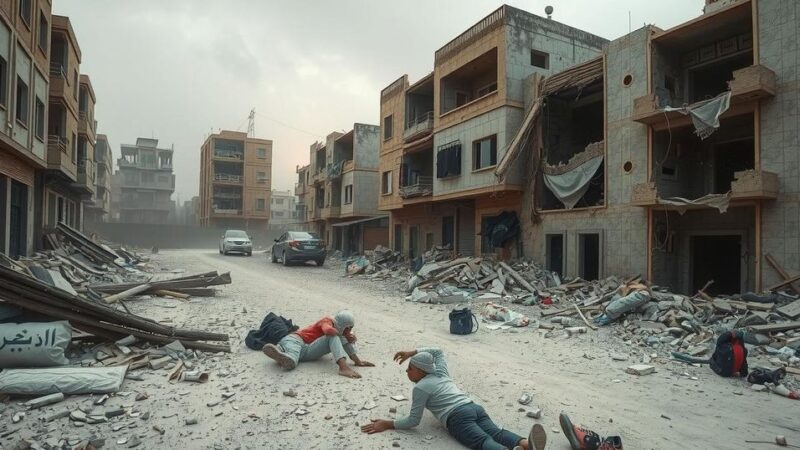“Signalgate” has unveiled details about a U.S. Signal chat that discussed airstrikes against the Houthis in Yemen, primarily highlighting security concerns. However, these revelations pose a grave threat to Yemeni civilians, providing the Houthis with intelligence that may lead to increased repression. The ongoing war has devastated civilian populations, and the perceived U.S. disinterest in their plight risks further humanitarian disaster. As violence escalates, the Houthis are likely to intensify abductions and oppression of dissenters, raising urgent calls for a reevaluation of military and foreign policy in the region.
The recent revelations surrounding the “Signalgate” incident have been extensively covered in media. This disclosure, which outlines how senior U.S. officials discussed military operations against the Houthis in Yemen through an insecure Signal chat, illuminates significant concerns regarding security breaches and classified information handling. However, the implications of this situation extend beyond governmental concerns, deeply affecting the Yemeni civilians caught in the midst of a prolonged civil conflict.
The ongoing conflict, which erupted in 2014 following the Houthi takeover of Yemen’s capital, Sana’a, has placed civilians in a dire predicament. Years of relentless violence intensified when the Saudi-led coalition intervened in 2015, enforcing a severe blockade that exacerbated the humanitarian crisis. Yemen now faces some of the gravest malnutrition rates globally, as the Houthis maintain control over the populace through strategic manipulation of food supplies and oppressive measures against dissent.
In early 2024, the Houthis began aggressive actions against vessels in the Red Sea, prompting response strikes from the United States, United Kingdom, and Israel. These retaliatory measures have contributed to an increase in civilian casualties. Evidence from the Signal chat indicates that the U.S. was focused on restoring freedom of navigation rather than an intent to dislodge the Houthis from power, possibly encouraging them to bolster military recruitment.
The Signal chat also alludes to the Houthis’ capacity to withstand targeted military actions, given their past resilience. However, the absence of a more comprehensive military strategy, which could involve collaboration with local forces and focused aerial support, places the Houthis in a position that may embolden them to escalate their violent recruitment efforts, especially against the backdrop of ongoing attacks. The city of Marib holds particular strategic significance due to its oil fields, critical to the Houthis’ economic survival.
There is a critical concern over how the Trump administration’s revelations from the chat may have endangered Yemeni lives, particularly given the names that could have compromised specific intelligence sources. Reports indicate that these disclosures may incite further brutal crackdowns by the Houthis on alleged dissidents, worsening the plight of Yemeni civilians. Any evidence of U.S. operational tactics can be leveraged by the Houthis to justify severe measures against those they suspect of espionage.
Involuntary disappearances have surged among civil society members in recent months, stifling dissent against the Houthis’ brutal regime. Aid workers, journalists, and activists are often targeted, creating a pervasive atmosphere of fear that deters open critique. Such abductions threaten humanitarian operations, ultimately allowing the Houthis increased control over aid distribution, which they manipulate for political leverage.
The lack of consideration for Yemeni civilians in geopolitical discussions, as illustrated in the Signal chat, highlights the prioritization of Western interests over humanitarian concerns. As a result, Yemeni citizens continue to endure profound insecurity and are often overlooked in broader policy considerations.
In conclusion, the “Signalgate” incident elucidates the detrimental consequences that geopolitical actions and disclosures can have on Yemeni civilians amidst ongoing conflict. The exposure of sensitive intelligence in a non-secure forum not only compromises operational effectiveness but also exacerbates humanitarian crises faced by civilians under Houthi control. With the Houthis poised to escalate violence and abductions in retaliation, it becomes critical to consider the human impact of governmental decisions and the necessity for comprehensive strategies that prioritize civilian safety. Such considerations should significantly shape future U.S. foreign policy in Yemen and similar conflict zones.
Original Source: theconversation.com






